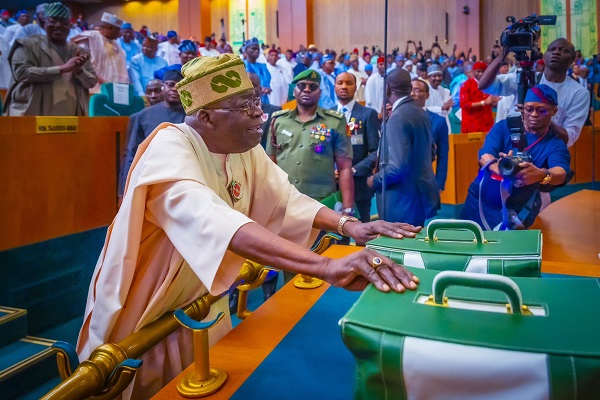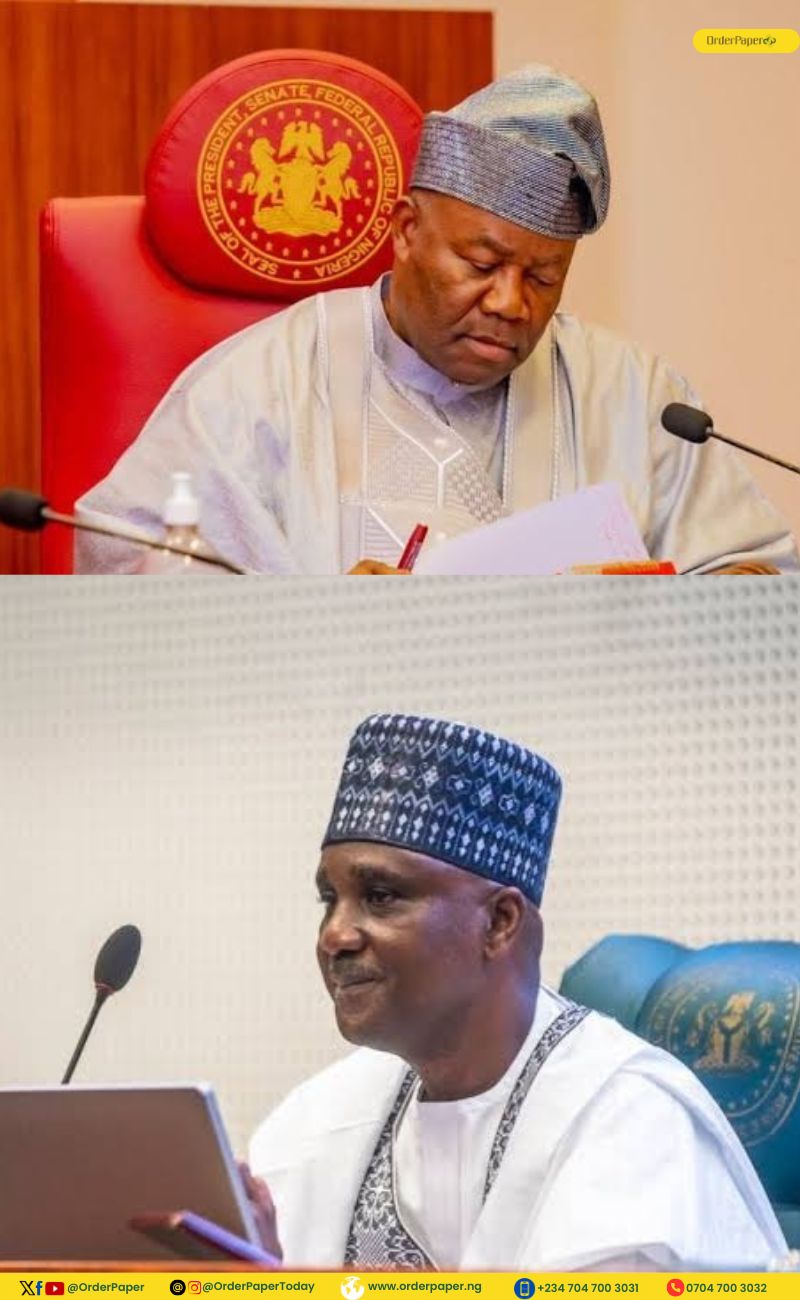In the 2025 budget estimates, N4.91 trillion was allocated to defence, N4.06 trillion to infrastructure while education and health got N3.52 trillion and N2.48 trillion respectively.

President Bola Tinubu has allocated a lion share of N4.91 trillion to defence while the education sector will gulp N3.52 trillion in the 2025 fiscal year.
These were revealed during the president’s 2025 budget presentation to a joint session of the national assembly Wednesday. Tagged, “the restoration budget: securing peace, rebuilding prosperity,” the N47.9trillion budget prioritises defence, education, infrastructure, and healthcare in what the president described as a strategic plan to restore peace, rebuild the economy, and ensure social welfare.
Defence receives top priority
The defence sector received the largest allocation as President Tinubu underscored the critical role of security in fostering national progress. “Security is the foundation of all progress,” he stated, emphasising that substantial funding has been directed to the military, paramilitary, and police forces.
“The government will continue to provide our security forces with the modern tools and technology they need to keep us safe. Boosting the morale of our men and women in the armed forces will remain our government’s top priority,” Tinubu assured.
He also recognised the dedication of security personnel, adding, “our administration will continue to empower them to defeat insurgency, banditry, and all threats to our sovereignty. Our people should never live in fear – whether on their farmlands, highways, or cities. By restoring peace, we restore productivity, revive businesses, and rebuild our communities.”
Education gets N3.52 trillion allocation
The education sector will gulp N3.52 trillion of the 2025 budget, with significant investments targeting infrastructure and student support. Tinubu revealed that 34 billion naira has already been disbursed to over 300,000 students through the Nigeria Education Loan Fund (NELFUND).
“In the 2025 budget, provision has been made for 826.90 billion naira for infrastructure development in the educational sector,” Tinubu disclosed. This amount includes allocations for the Universal Basic Education Commission (UBEC) and the establishment of nine new higher education institutions.
Infrastructure and health: Key development pillars
President Tinubu earmarked N4.06 trillion for infrastructure development, reiterating his administration’s commitment to boosting economic growth through public works and transport projects. “When we launched the Renewed Hope Infrastructure Development Fund, it was with the conviction that infrastructure remains the backbone of every thriving economy,” Tinubu said.
He highlighted ongoing projects, including the Lagos-Calabar Coastal highway and the Sokoto-Badagry highway, as examples of his administration’s drive to “accelerate economic output and improve the lives of Nigerians.”
For the health sector, N2.48 trillion has been allocated, with 402 billion naira dedicated to infrastructure investments and 282.65 billion naira for the Basic Health Care Fund. Tinubu said the government is focused on strengthening primary healthcare systems and revitalising hospitals. “Our hospitals will be revitalised with medication and better resources, ensuring quality care for all Nigerians,” he assured. He also noted plans to reduce medical import dependency through essential drug procurement.
Agriculture for food security
Addressing food security, President Tinubu emphasised the need to support farmers in overcoming challenges posed by insecurity. “Increasing agricultural production is central to our food security agenda, but insecurity has crippled this vital sector,” he noted.
“We are supporting our farmers with funding and inputs to reignite productivity. Food security is non-negotiable. In this regard, we are taking bold steps to ensure that every Nigerian can feed conveniently, and none of our citizens will have to go to bed hungry,” Tinubu declared.
President Tinubu concluded by reiterating his administration’s commitment to building a secure, prosperous, and inclusive nation. The 2025 budget, he said, reflects a renewed commitment to strengthening the foundation of a robust economy, while addressing critical sectors essential for the growth and development envisioned.


